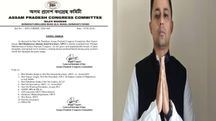Conquering Time Zones: Strategies for Overcoming Jet Lag After Extended Flights
Jet lag, the unwelcome side effect of crossing multiple time zones, can cast a shadow over even the most exhilarating of travel experiences. Characterized by symptoms such as fatigue, insomnia, irritability, and disorientation, jet lag occurs when the body's internal clock, or circadian rhythm, becomes out of sync with the local time at the destination.

Jet lag, the unwelcome side effect of crossing multiple time zones, can cast a shadow over even the most exhilarating of travel experiences. Characterized by symptoms such as fatigue, insomnia, irritability, and disorientation, jet lag occurs when the body's internal clock, or circadian rhythm, becomes out of sync with the local time at the destination. While jet lag is a common and inevitable consequence of long-haul travel, there are several strategies and techniques that can help travelers mitigate its effects and adjust more smoothly to new time zones.
Understanding Jet Lag:
Jet lag occurs when rapid travel disrupts the body's natural circadian rhythm, which regulates sleep-wake cycles and other physiological processes. The body's internal clock relies on cues such as sunlight, meal times, and physical activity to synchronize with the local time at the destination. When traveling across multiple time zones, these cues are suddenly altered, leading to a mismatch between the internal clock and the external environment.
Gradually Adjust Sleep Schedule:
In the days leading up to your trip, gradually adjust your sleep schedule to align with the time zone of your destination. Shift your bedtime and wake-up time by 15-30 minutes each day, gradually moving closer to the local time at your destination. This gradual approach can help ease the transition and minimize the shock to your circadian rhythm upon arrival.
Get Plenty of Sunlight:
Exposure to natural sunlight is one of the most effective ways to reset your internal clock and combat jet lag. Spend time outdoors during daylight hours, especially in the morning, to signal to your body that it's time to be awake and alert. If possible, engage in outdoor activities such as walking, jogging, or sightseeing to maximize exposure to sunlight and promote adjustment to the new time zone.
Stay Hydrated and Eat Light:
Proper hydration and nutrition play a crucial role in mitigating the effects of jet lag. Drink plenty of water before, during, and after your flight to stay hydrated and counteract the dehydrating effects of air travel. Opt for light, nutritious meals and snacks that are easy to digest and won't weigh you down. Avoid heavy, greasy foods and excessive caffeine, which can disrupt sleep and exacerbate jet lag symptoms.
Limit Alcohol and Caffeine:
While it may be tempting to indulge in a glass of wine or a cup of coffee during your flight, alcohol and caffeine can disrupt your sleep-wake cycle and worsen jet lag symptoms. Limit consumption of alcohol and caffeine, especially in the hours leading up to bedtime, to promote restful sleep and facilitate adjustment to the new time zone.
Take Short Naps:
Short naps can provide a quick energy boost and help alleviate fatigue during periods of extreme drowsiness. Limit naps to 20-30 minutes and avoid napping late in the day, as this can interfere with your ability to fall asleep at night. Use naps strategically to combat fatigue and enhance alertness without disrupting your sleep schedule.
Establish a Bedtime Routine:
Creating a relaxing bedtime routine can signal to your body that it's time to wind down and prepare for sleep. Engage in calming activities such as reading, meditating, or taking a warm bath to promote relaxation and ease the transition to bedtime. Avoid electronic devices such as smartphones, tablets, and laptops, which emit blue light that can interfere with the production of melatonin, a hormone that regulates sleep.
Consider Melatonin Supplements:
Melatonin supplements can help regulate sleep-wake cycles and facilitate adjustment to new time zones. Take a low dose of melatonin (0.5-3 mg) approximately 30 minutes to an hour before bedtime to signal to your body that it's time to sleep. Consult with a healthcare professional before taking melatonin, especially if you have underlying health conditions or are taking other medications.
Jet lag may be an unavoidable consequence of long-haul travel, but with the right strategies and techniques, travelers can minimize its impact and adjust more smoothly to new time zones. Whether it's gradually adjusting sleep schedules, maximizing exposure to sunlight, staying hydrated and well-nourished, or establishing a bedtime routine, there are plenty of effective ways to combat jet lag and reclaim your vitality after continuous flying. By prioritizing self-care and implementing these practical tips, travelers can enjoy a more seamless and enjoyable travel experience, free from the burdens of jet lag.
Copyright©2026 Living Media India Limited. For reprint rights: Syndications Today









